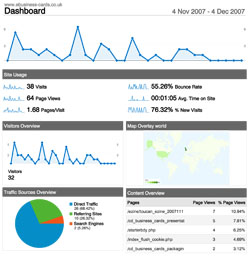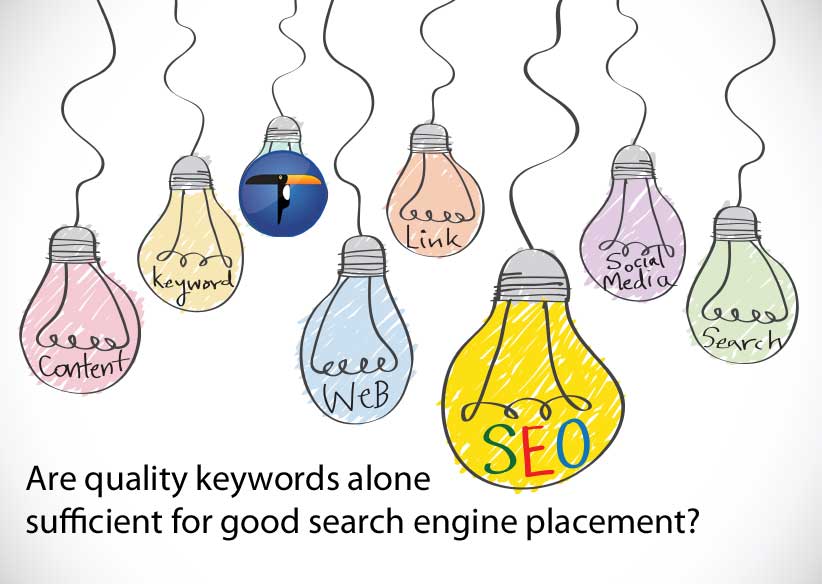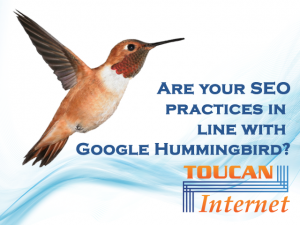Search Engine Marketing
Fundamental health check and opportunity spotting for your website
Introduction
So your website has been built and properly optimised for the search engines, directories and local search tools; it is now ready to be promoted.
This doesn’t necessarily mean engaging a dedicated search engine optimisation and marketing team, though the results from such programs are normally very effective. It does mean making certain that the world is accepting your new web site as you expected and making sure that nothing that could impede its success remains undiscovered.
“We really don’t want to be scratching our heads in six months from the launch wondering why it’s not performing and regretting the investment.”
You want to be celebrating the website meeting the objectives you set for it.
Don’t for one minute think that building a great website with quality content will work on its own. Your website is part of a bigger marketing ecosystem and needs to be linked in accordingly; linking typically with Social Media programs, the wider marketing activities of the enterprise, the blog, the traditional marketing, your legacy backlinks etc.
It’s at this stage where so many websites of great potential fail as there is a need to watch how a website is accepted or not by the search engines and optimise accordingly.
The Search Engine Marketing (SEM) performed by Toucan Internet is a mix of promotion, monitoring and feedback. The feedback is provided to you with the sole objective of improving your website performance and is focussed on specific outbound and inbound improvements in line with your performance goals.
We provide feedback in the form of basic reports and a commentary that you can act upon as you feel appropriate. It does give you the professional test and monitoring essential to any business activity where performance is critical. Search Engine Optimisation and SEM are essential and inseparable partners, each one feeding the other in a loop of continuous improvement.
Promote, Monitor and Feedback
Our mission is to see our clients get greater results and we promote to the search engines (SE) and directories in a number of ways. Since Google is the prime referrer nationally and internationally for b2b and b2c, this search engine is the prime focus of activity as it will return the highest rewards once successful. Google performance and feedback is reviewed manually every session in some depth. You will be asked to include a Google verification code in your website so we can gain access to Google’s valuable activity and performance data held for your website in their webmaster section. We will also need you to add a Google tracking code so we can access the visitor data captured by them and therefore provide qualified feedback.
We promote to the prime SE’s manually and the rest using automatic submission software. We manually verify your listing on Google, Yahoo UK, Bing and DMOZ – The Open Directory Project.
We manually submit the site to local and individual referrers such as UFindUs and Hotfrog and subsequently check for a positive listing.
Once the promotion is complete, reports are compiled including one for all the automatic submissions and a more detailed one for the manual SE including a comprehensive analysis of Google’s take on your site.
We analyse these results in line with your goals and will feed back our recommendations. The recommendations should be considered for your SEO activities and will likely involve updates to the website so the site will play a stronger hand to the search engines, particularly Google.
The Typical Routine
For most clients we perform this comprehensive SEM routine on a cyclical basis with most clients having such a review every three months
After the first registration session the next recommended session is at the six-week point and then three monthly thereafter. This programme can be tailored to specific needs.
After each session you will receive submission and analysis reports. After the second session the results will normally start to appear and we can see clear indicators as to how to improve the results, if need be.
Whilst there is no firm guarantee of a search engine position without paying for it by a Pay Per Click campaign (PPC), Toucan does gain good results for its clients who understand that we have to work together to get the results over a period of time. We will of course also help you establish PPC campaigns if required.
Our Promise
- We agree the goals for the website in the form of key terms & phrases under which the site is to be found in line with your website optimisation
- We manually promote to the key search engines and monitor accordingly
- We manually monitor in-depth Google activity
- We manually promote to emerging directories and local search type websites
- We provide a report of manual monitoring and promotional activity
- We provide an online report of automatic submissions with history
- We provide you an online Ranking report for Key engines and with history and graphs for multiple key terms
- We provide you a list of recommendations in summary for future SEO of the site
As Toucan needs to keep up to date with the ever changing requirements of SEO and SEM this programme is subject to change as new practices, search tools and requirements evolve.
If you have any special requirements or would like to discuss these programmes in more detail, please contact us at:
t: 01279 871 694




 AL asked “what are you doing Dave” in Stanley Kubrick’s film rendition of Arthur C Clarke’s classic “2001, a Space Odyssey”, it epitomised our distrust of autonomous processes that we allow to impact our lives. Pre-programmed devices and services fed from the data we leave in our wake steer our lives more than ever and none more than Google providing answers to your questions on which we all rely to make “informed” decisions.
AL asked “what are you doing Dave” in Stanley Kubrick’s film rendition of Arthur C Clarke’s classic “2001, a Space Odyssey”, it epitomised our distrust of autonomous processes that we allow to impact our lives. Pre-programmed devices and services fed from the data we leave in our wake steer our lives more than ever and none more than Google providing answers to your questions on which we all rely to make “informed” decisions.






